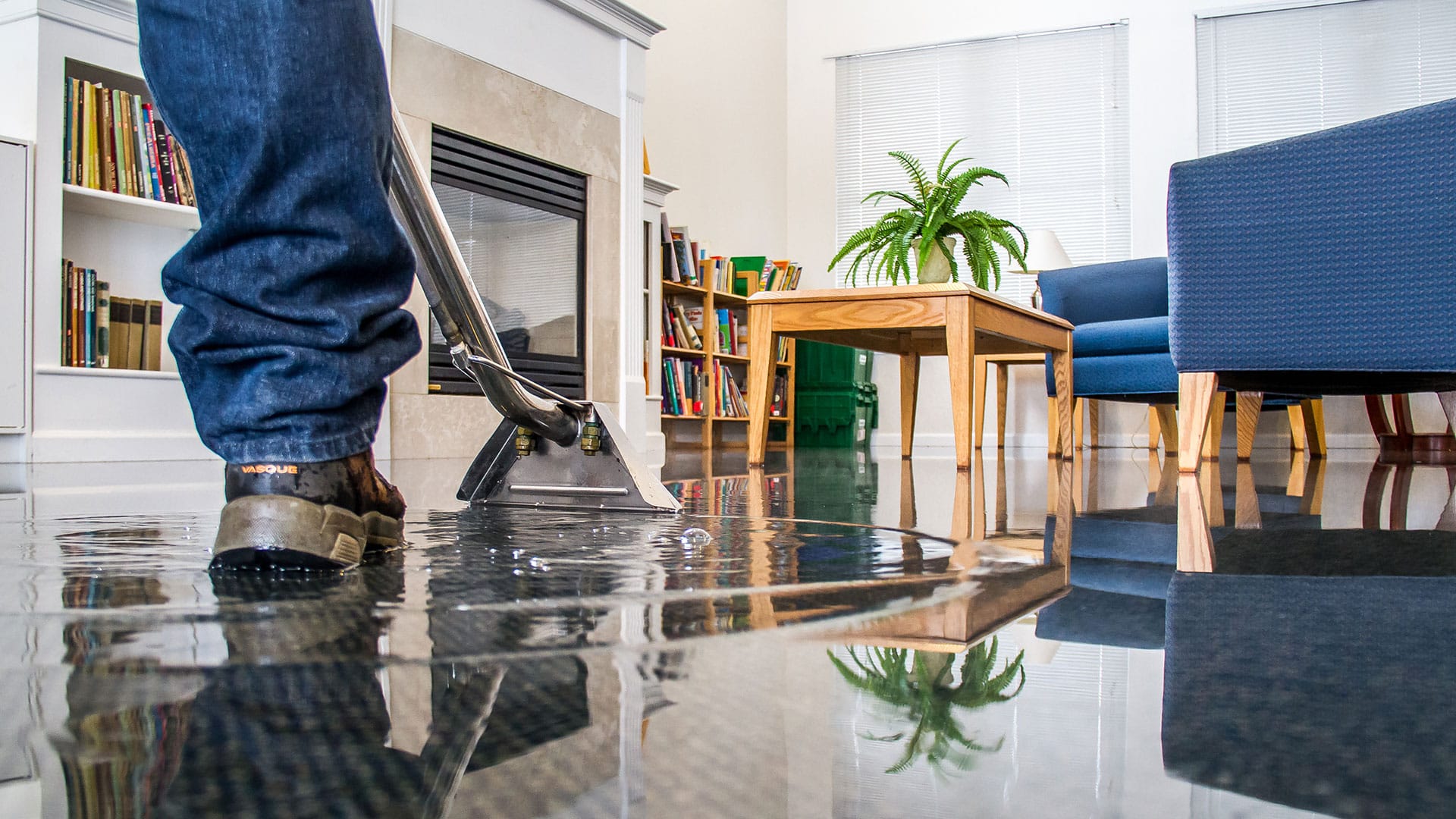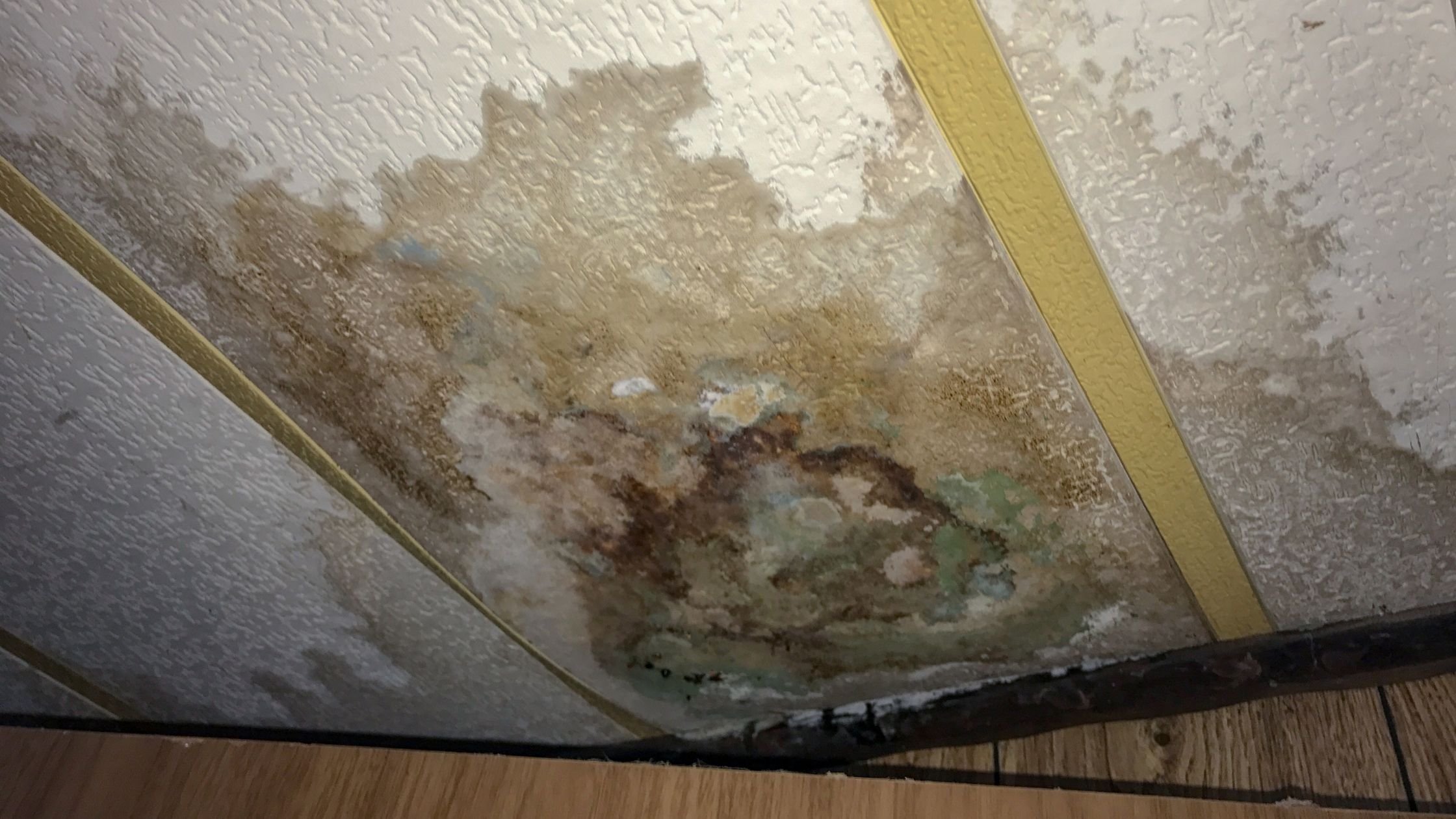Immediate Water Extraction Services to Prevent Structural Damage
Wiki Article
The Process of Water Damage Cleanup: Ensuring Your Home Is Restored Successfully
Water damages can be a challenging difficulty for property owners, requiring a structured and meticulous cleaning process to bring back safety and functionality. damage restoration services. Following this, effective water extraction strategies play an essential function in minimizing further damage.Analyzing the Damage
Upon uncovering water damage, the initial step is to completely evaluate the level of the influence. This first evaluation is crucial, as it assists determine the necessary steps for reliable clean-up and remediation. Begin by evaluating the impacted areas, including wall surfaces, ceilings, floors, and personal belongings, to determine the resource of the water breach, whether from flooding, leakages, or condensation.Recording the damage is necessary for both insurance coverage claims and planning remediation initiatives - damage restoration services. Usage photographs and created notes to record the seriousness of the damage, noting any damaged structural aspects and products. Pay unique focus to locations that may not be right away noticeable, such as behind walls and under carpets, as concealed dampness can result in additional problems, including mold growth
Furthermore, examine the timeline of the water exposure. Eventually, a comprehensive analysis lays the groundwork for an effective water damage cleanup process, ensuring that all influenced locations are attended to effectively and thoroughly.
Water Extraction Techniques

Specialists normally utilize completely submersible pumps for larger quantities of water, which can swiftly alleviate flooding in cellars or other affected areas. For smaller sized amounts, wet/dry vacuum cleaners are commonly used to draw out recurring dampness from carpetings and hard surface areas. Additionally, using mobile extractors permits targeted elimination in restricted spaces or locations with fragile products.
In circumstances of contaminated water, such as sewer or floodwater, advanced removal methods may involve the usage of biohazard equipment to make sure safety and compliance with health and wellness guidelines. High-powered removal devices are important in minimizing water retention in architectural materials, which can cause mold and mildew development and architectural degeneration otherwise dealt with immediately.
Inevitably, the efficiency of water removal methods plays an essential duty in the overall success of the water damages clean-up procedure, laying the foundation for subsequent remediation efforts.
Drying and Dehumidification
When standing water has been efficiently drawn out, the following essential stage in the water damage cleaning process is drying and dehumidification. This action is important to prevent additional damage and mold growth, which can happen within 24 to 48 hours in damp atmospheres.To attain reliable drying out, customized tools such as industrial-grade air movers and dehumidifiers is employed. Air movers distribute air throughout damp surface areas, improving dissipation prices, while dehumidifiers decrease humidity degrees airborne, advertising a favorable setting for drying. The mix of these devices ensures that moisture is extracted from floors, wall surfaces, and home furnishings, enabling them to completely dry completely.
It is very important to keep track of the drying procedure carefully. Specialists frequently use wetness meters to examine the wetness material in various materials, guaranteeing that all affected locations get to appropriate dryness degrees. This meticulous strategy helps to avoid covert wetness pockets that can bring about architectural damage or harmful mold growth.

Cleansing and Sterilizing
After the drying out and dehumidification phase is full, the look here next crucial action in water damage cleanup is cleaning and disinfecting the affected locations. This process is vital to avoid the growth of mold and mildew, microorganisms, and various other microorganisms that flourish in damp environments.The cleaning stage generally includes removing any type of particles, dirt, and contaminants from surface areas utilizing specialized cleaning up representatives. For hard surfaces, a mix of soap and water or industrial cleansing products is commonly employed. Soft products, such as upholstery and carpets, may require a lot more considerable cleaning approaches, including steam cleaning or deep removal methods, to ensure detailed cleanliness.

Sterilizing adheres to cleansing, utilizing EPA-approved anti-bacterials to get rid of dangerous microbes. This action is important, particularly in areas that might have entered into contact with floodwaters or sewage, as these resources can present severe health risks.
In addition, it is very important to attend to any type of remaining odors, which might need using odor neutralizers or innovative methods like ozone treatment. Correct cleansing and sanitizing not only recover the security and health of your home yet also lay the foundation for successful restoration and fixings in subsequent phases of the water damage cleaning process.
Restoration and Fixings

As soon as the evaluation is total, restoration efforts can begin. Furthermore, flooring might call for similar attention, depending on the level of water direct exposure.
It is important to involve skilled restoration experts during this procedure, as they have the knowledge to deal with complex fixings successfully. They can aid mitigate prospective future issues, such as mold growth or architectural instability, therefore guaranteeing a habitable and safe living environment. Eventually, efficient repair and repair services bring back the home's honesty toilet restoration and boost its total worth.
Conclusion
To conclude, the process of water damage cleanup is vital for bring back a home to its pre-damage problem. Each phase, from evaluating the damages to carrying out reliable water removal strategies, complied with by detailed drying, sanitizing, and needed repair work, plays a necessary function in making sure safety and conformity with structure requirements. Reliable execution of these steps not just minimizes prompt damages yet additionally enhances the lasting honesty and value of the residential property.Water damages can be an overwhelming obstacle for house owners, necessitating a meticulous and structured cleanup procedure to recover safety and capability. Inevitably, an extensive assessment lays visite site the groundwork for an effective water damage clean-up procedure, ensuring that all affected areas are addressed effectively and thoroughly.
Reliable water extraction strategies are vital in mitigating damage and avoiding more problems following a water breach occasion.In verdict, the procedure of water damages cleanup is vital for restoring a home to its pre-damage problem. Each phase, from evaluating the damages to carrying out effective water extraction strategies, complied with by complete drying out, sanitizing, and needed repairs, plays a vital role in guaranteeing safety and security and compliance with structure criteria.
Report this wiki page